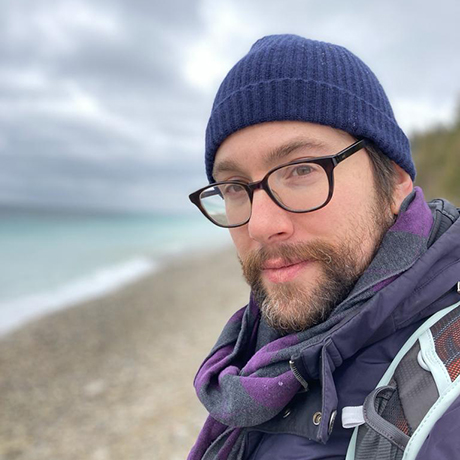
Congratulations to Tanhum Yoreh who was promoted to Associate Professor (effective July 1, 2023). He joined the School in 2017 and has made a significant contribution through his research and teaching, and was recently selected as an A&S Experiential Learning (EL) Faculty Fellow.
Can you tell me about your research and why it’s important?
My research is at the nexus of the opportunities and challenges to communicate environmental issues with the vast number of environmentally disengaged members of faith communities. My aim is to facilitate environmental engagement in communities that have historically felt disengaged or even alienated by the modern environmental movement, particularly in religious communities. Through this work I aim to contribute to a bigger tent environmentalism.
I divide my research in religion and environment into two main, often overlapping, categories of theory and practice. In the area of theory, I explore faith traditions for core ethics and values that inform practitioners on how to interact with the natural environment. I explore these concepts through textual, historical, framing, and thematic analyses. By studying the conceptualization of ideas, I theorize which ideas have a historical basis and thus have a greater appeal to highly traditional communities, and which are modern constructs more suited for communicating to liberal communities. This is a highly iterative process that also informs my applied research. In my applied research I study active faith communities and their degree and type of engagement with the environment. Some of the key questions driving my research include: what are faith communities doing to engage the environmental crisis, why are they doing it, and how can faith-based language support and encourage this engagement?
Can you describe your courses and the relevance?
My current courses focus on faith-based environmentalism. Students join from a wide variety of academic programs, united by their interest in the environment. For most, religion is not a formal focus of their studies. And yet, religion still plays an enormous role in shaping the cultures of the world and is critical for sustainability discourse. In ENV330 Waste Not: Faith-Based Environmentalism, I focus on exposing students to the theoretical underpinnings of the field of religion and environment and allow them to see how these theories manifest themselves in actual faith communities. Students come away from the course with knowledge of the inherent complexities that exist when ancient traditions encounter sustainability issues and acquire tools to critically analyze these intersections.
What do you like best about teaching?
Teaching for me is all about the “aha” moments. We spend a lot of time talking about ideas and theories in the classroom. Abstract thinking is a big part of what we do in the university, but in the environmental landscape this can be limiting. When I integrate the “idea” components of my courses with real-world examples – outside of the classroom when possible – the concepts sink in, and the students come away enriched and better equipped to address the challenges of our times.
What do you hope to accomplish as an A&S Experiential Learning Fellow?
I’ve always been very keen on offering my students a window into real-world experiences. Students consistently tell me about how important the out-of-classroom experiences have been in their understanding of course material. For me, the fellowship is about learning how to take the most impactful experiences of my courses and supercharge them. I’ll be spending the next year working with community partners, colleagues, and the experiential learning team at the University towards building meaningful experiences for the students, enhancing existing community partnerships and creating new ones, and finding ways students can enter into reciprocal relationships with the community partners through their coursework. I am looking forward to sharing the outcomes of this fellowship with our students through new course offerings in the coming years.


